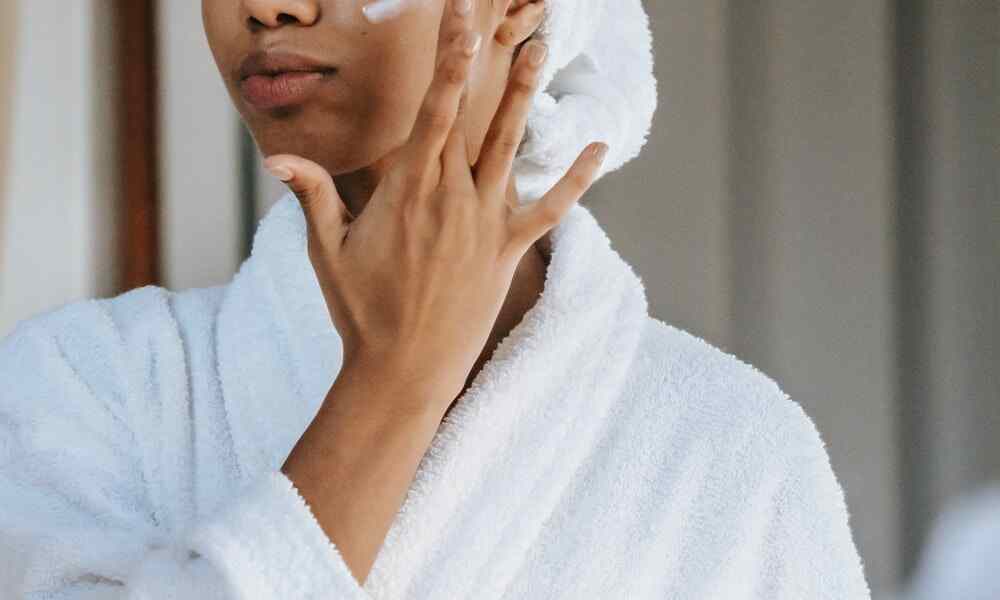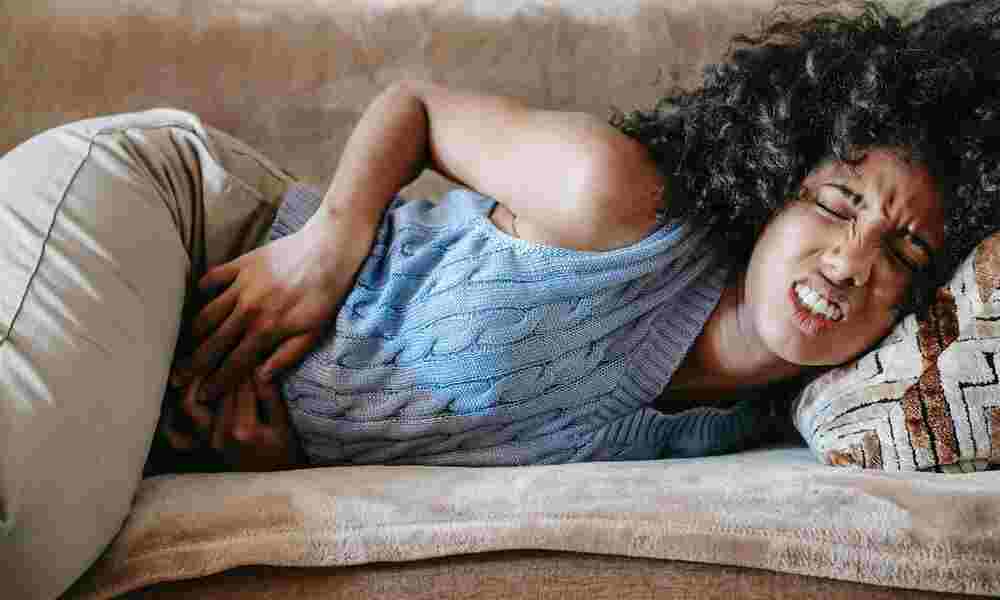
10 Tips on Getting a Clear Skin You Never Know You Needed
Suppose you are looking for tips on how to have clear skin. In that case, you must have been worried about your skin or battling some worrisome skin disorders like acne, eczema, discoloration, athlete’s foot, and sunburn.
Even though most people entirely narrow how to have clear skin to the face, it goes beyond that to every part of the body covered with skin. Also, many efforts go in vain or yielded no results because they did not put into perspective the type of skin they have.
While there are general tips on having clear skin, there are tips for special types of skin. What type of skin do you have? I am sure many don’t know. In this article, I shall expose you to tips on having clear skin.
General Tips on How to Have Clear Skin
1. Avoid Popping Pimples
A pimple is an accumulation of oil, sebum, and bacteria. It also signifies that the body’s natural healing process is working.
This healing process is disrupted by popping the pimple. Furthermore, the spilled liquids expose the surrounding skin to the same bacteria, increasing the likelihood of new pimples.
The scarring from the exposed pimple may be permanent. Avoid popping pimples whenever feasible. Instead, you can use other easy ways of getting rid of pimples without popping them.
2. Wash Your Skin At Twice Daily
Leaving sweat on the skin and allowing it dry can make acne worse, so it is best to wash it as soon as possible after sweating.
The American Academy of Dermatologists recommends that people wash twice daily and after sweating.
3. Eat A Healthy Diet
“We are what we eat” goes a popular maxim. How true that what we eat makes us. Eating a nutritious, balanced diet is beneficial to the entire body, as well as the skin. A diet rich in plant foods and lean protein sources may help offer the nutrients the skin requires to stay healthy.
People who want to have clear skin should also avoid certain foods, such as dairy milk, high-fat foods, and fast food. According to a paper published in Clinical Nutrition, milk and acne have a favorable connection.
Some believe this connection is due to milk’s growth chemicals and hormones.
4. Avoiding Stress and Stress Management
Distress affects virtually every part of the body, including the skin. Studies have shown a link between stress and acne, claiming that stress might cause the body to produce more inflammatory substances. Anger or emotional stress can trigger acne breakouts or exacerbate existing problems.
As a result, finding techniques to reduce stress is critical for acne management. Among the approaches for stress management are:
- Regularly exercising,
- Getting massages, or acupuncture,
- Engaging in soothing methods like meditation or breathing exercises.
- Employing different mechanisms for self-awareness to balance activities as individuals’ stress-relieving behaviors will also vary.
5. Hydration Is Essential
Keeping your skin hydrated will help it look and feel smooth and supple. This is because the skin’s outermost layer contains enough moisture to wash out pollutants and transport nutrients to the skin’s cells.
Well-hydrated skin is also less susceptible to irritants and bacteria that can penetrate the lipid barrier when the skin is dehydrated.
Itchy, flaky, red, or even inflammatory skin generally results from a lack of water. Due to skin cell shrinking, dry skin can accentuate the appearance of fine lines and wrinkles.
6. Use Moisturizer
The skin on your face, ears, neck, and chest are very sensitive to environmental changes and are the most frequent areas of the body known to develop skin cancer. These areas of skin also shed cells more rapidly than other parts of the body and therefore need moisture to repair themselves, allowing younger skin cells to rise to the surface.
Also, the massaging effect used when applying lotion helps stimulate blood circulation and new cell generation.
Daily Moisturizing can reduce the chance of developing extreme dryness or oiliness. Both extremes harm the skin and cause common skin conditions like acne.
7. Pay Attention to the Temperature of Your Water
Hot showers and baths are bad for your skin, so keep that in mind. Shower with warm water and for a shorter period. Your skin will be noticeably different. Instead of rubbing your skin dry after a shower, gently pat it dry.
When you pat your skin dry, you’ll be able to seal in more moisture.
8. Use Mild Products on Your Skin
Use mild soaps and detergents – soaps and shampoos that contain alcohol and strip natural oils from your skin. Look for a mild, fragrance-free cleanser with aloe minerals and vitamins that will do much good.
9. Use a Sunscreen
UV (ultraviolet) rays from the sun cause skin damage. Use sunscreen to protect your skin from the sun’s harmful rays when going outside.
Also, clothes that do not absorb heat should be worn on sunny days.
10. Modify Your Lifestyle
Certain bad habits result from unhealthy skin, thus the need to identify and work on them deliberately. Lifestyle changes to consider on how to have clear skin include:
- Getting a full night’s rest each night
- Avoiding smoking
- Reducing or eliminating excess sugar
- Avoiding fried food.
How to Have Clear Skin for Those with Oily Skin
- DO wash your face every morning, evening, and after exercise. While washing, resist the temptation to scrub your skin or remove makeup. Scrubbing irritates your skin, which can make it look worse.
- DO choose skin care products labeled “oil-free” and “non-comedogenic.” This means that products with these labels — including cleansers, moisturizers, and makeup — won’t clog your pores or cause acne.
- DO use a gentle, foaming face wash. Many people believe that they need to use a strong face wash for oily skin to dry out their skin. However, using a face wash that is too harsh can irritate your skin and trigger increased oil production. Instead, look for a mild, gentle face wash.
- Don’t use oil-based or alcohol-based cleansers. These can irritate your skin.
- DO apply moisturizer daily. Although you have oily skin, it is still important to apply moisturizer to keep your skin hydrated.
How to Have Clear Skin for Those with Dry Skin
Dry skin is skin that has no moisture in its outer layer. If left unattended, it can crack and get infected. It is one cause of itchy skin also.
How can dry skin be still kept healthy and glowing?
- Use a good moisturizer. If moisture is good for any skin, then dry skin is more. Also, there are natural products such as coconut oil, aloe vera, and olive oil are also recommended.
- Apply lip balms and use mild petroleum jelly or balms in dry areas like the palm of feet.
- Gently wash your face at least twice a day. Use a gentle, alcohol-free, nonfoaming cleanser on your face twice a day and after sweating. Products with stearic acid (found in shea butter) or linoleic acid (found in argan oil and others) can help repair your skin. If you have sensitive skin, wash with a cleanser in the evening and just rinse with water.
- Use warm water and limit bath time. Long showers or baths and hot water remove your skin’s natural oils. Limit bathing to no more than once a day and no longer than 5-10 minutes. Use warm, not hot water
How to Have Clear Skin for Those with a Combination of Two Skin
People with combination skin are faced with managing dry patches of skin and some oily areas having to handle both cases. The following are tips to care for such:
1. Use Two Facial Cleansers
For persons with mixed skin, facial washing might be difficult. While some people benefit from an oil-controlling face cleanser, others may find it dries up their skin too much.
Combination skin sufferers may find that applying a basic mild cleanser on the face and then an oil-reducing cleanser on any oily areas helps to balance the skin.
2. Use Blotting Papers
Bloating paper is a highly absorbent type that helps excess liquid, in this case, oil, thus creating a balance. They also help to prevent sebum overproduction which helps to prevent acne breakouts.
Conclusion
In Conclusion, many remedies for having clear skin, including home remedies. However, knowing the type of skin one has is an essential step as the foundation is for every building.

